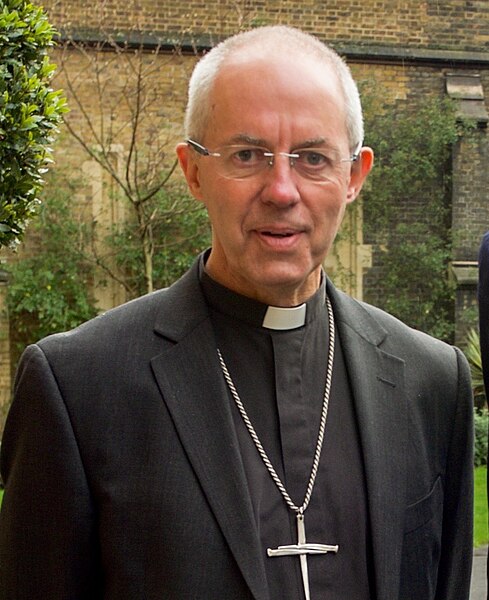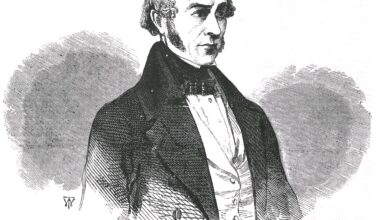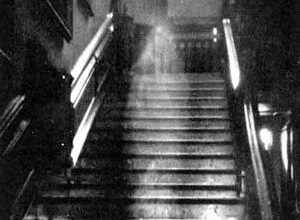The independent review led by Keith Makin into the Church of England’s handling of allegations of serious abuse by John Smyth has brought to light the Church’s systematic failings in addressing sexual abuse within its ranks.
Between the 1970s and 2010s, Smyth subjected as many as 130 boys and young men in the UK and Africa to physical, psychological, and sexual abuse, including brutal beatings with a cane for ‘sins’. Victims reported being beaten so badly they were forced to wear nappies to stop the bleeding. Smyth used ‘Iwerne camps’—Christian holiday camps for children aiming to promote evangelicalism in the Church—to access many of his victims.
The Makin review found ‘clear evidence’ that the abuse perpetrated by Smyth was ‘covered up’. Key figures criticised in the review included the soon-to-be former Archbishop of Canterbury, Justin Welby, who the report said ‘could and should’ have reported Smyth to authorities when details were presented to him in 2013.
Despite acknowledging that the review made clear that he had ‘personally failed to ensure Smyth’s horrific abuse was energetically investigated’, Welby initially refused to step down. But following a petition set up by members of the General Synod and mounting pressure to go, Welby eventually resigned. Other implicated bishops are hanging on.
This appalling affair not only highlights a grave injustice but should also serve as a wake-up call for a broader re-evaluation of the Church of England’s role in British political and public life.
As the long shadow of clerical abuse and the Church’s appalling mishandling of it continues to traumatise victims, the argument for Anglican bishops to lose their automatic seats in the House of Lords and for the Church of England to be disestablished has never been more pressing.
For centuries, the Church of England has enjoyed a privileged status, allowing bishops to sit as legislators in the House of Lords by right of their office. This ongoing arrangement is wrong in principle but is particularly egregious in light of repeated instances of abuse, cover-ups, and a lack of accountability. When the very institution that claims to act as a moral authority fails so spectacularly to protect its most vulnerable members, it raises serious questions about its fitness to influence public policy and legislation.
The Makin review’s findings reveal a culture of silence and complicity that has shielded perpetrators and ignored victims. The Church’s internal mechanisms for handling abuse reports have proven inadequate, prioritising reputation over accountability. Such failures have entirely discredited bishops’ claims to moral authority and legitimacy, deeply implicated as they are in a system of abuse and negligence.
To allow the 26 bishops to remain in the House of Lords is an affront to justice and decency. It sends a message that religious privilege may be enjoyed without suffering the consequences of its actions, with the expediency of preserving the Church superseding the rights and lives of victims and survivors.
Staggeringly, despite Welby losing his automatic seat, he may still retain a lawmaking role. Since the 1920s, retiring Archbishops of Canterbury have by convention been given peerages allowing them to continue to sit in the Lords after their tenure as a Lord Spiritual has ended.
Regardless of his anointing of the King, or whatever special pleading might be made, this categorically should not happen this time. Welby’s shameful valedictory speech in the Lords—which crassly downplayed his personal responsibility for the Church’s failings, leaving victims feeling ‘dismayed’ and ‘disgusted’—should put an end to any debate on the matter.
There is now a rising tide of opposition to the granting of seats to clerics as of right. A bill to reform the Lords currently making its way through Parliament could provide a legislative vehicle for their removal. Disappointingly, the Labour Government’s ambitions only stretch as far as removing hereditary peers.
Bizarrely, the Tories have led the charge to remove the bishops’ privileges in Westminster, with former Defence Secretary Gavin Williamson tabling an amendment to the House of Lords (Hereditary Peers) Bill to eject the bishops. Despite attracting the support of Conservative colleagues, including Richard Holden, Alicia Kearns, and Nick Timothy, Labour whipped against it and MPs voted it down.
The bill has now advanced to the House of Lords, where former Education Secretary Baroness Nicky Morgan has emphasised that the time for a serious discussion about the bishops’ bench has ‘very firmly’ arrived. Labour peer Harriet Harman plans to propose an amendment that would compel the Government to commit to introducing measures for the removal of bishops within two years, ensuring that this vital conversation takes place. However, it is likely that religious privilege will once again prevail, allowing unelected clerics to retain their influence in Parliament. Such an outcome would represent a significant missed opportunity for reform.
Seats as of right for Anglican clerics in the House of Lords is a privilege which is impossible to justify in a modern legislature. Less than 2% of the British public attend Anglican services on a regular Sunday, and new polling from YouGov suggests only one in five Brits support the bishops’ bench. Some may still argue that bishops provide a moral compass to the Lords. But sexual abuse scandals and the Church’s dogmatic opposition to widely supported social reforms concerning gender equality, same-sex marriage, reproductive freedom, and assisted dying shows that the monopolisation of morality by religious leaders is over.
In modern and diverse Britain, which prides itself on fairness and equality, continuing to grant privileged access to the levers of power to representatives of one particular religious institution mired in scandal and disgrace is not just outdated; it’s intolerable. The time for reform is now.









2 comments
Hear hear!
A well-presented and seemingly unanswerable case. Let’s see if the bishops have the temerity to try and use their self-professed moral authority to argue against and dilute the assisted dying bill when it reaches the Upper House.
Your email address will not be published. Comments are subject to our Community Guidelines. Required fields are marked *
Donate